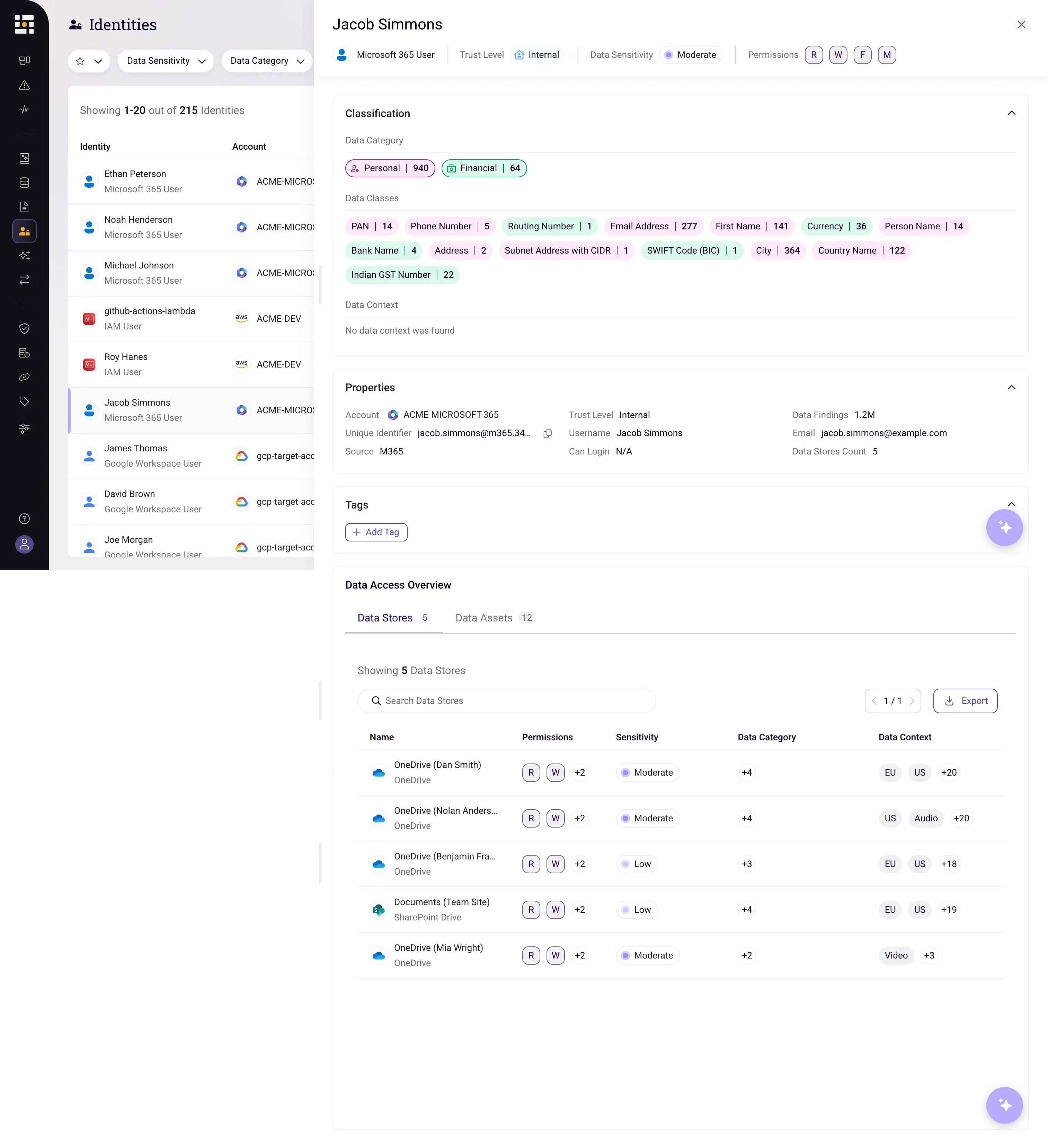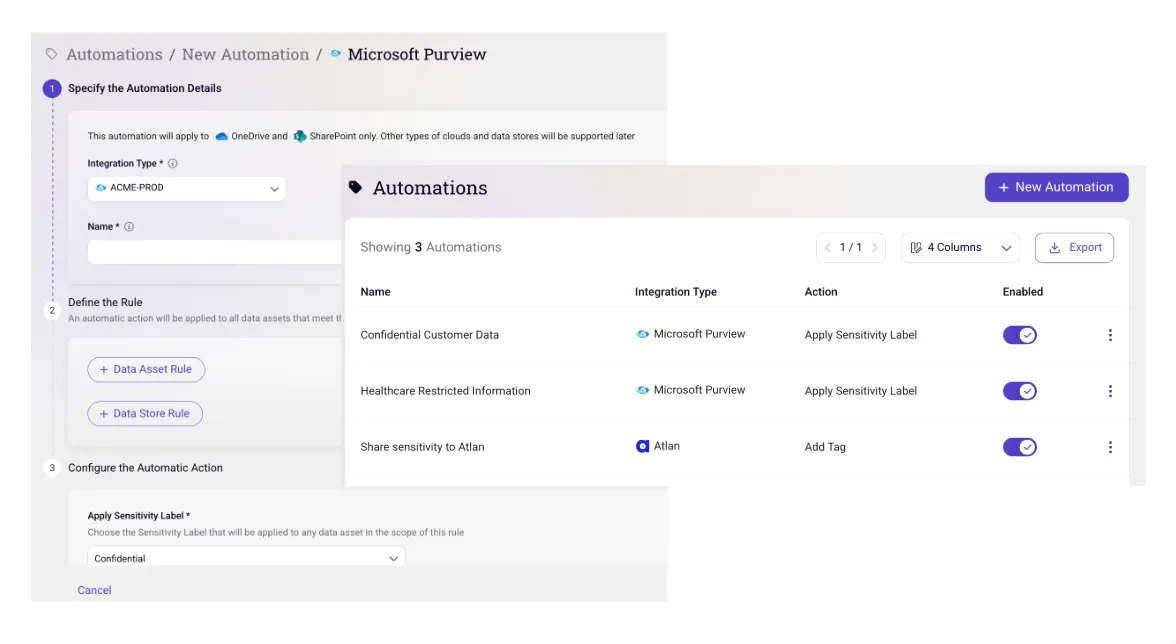How to Prevent Data Breaches in Healthcare and Protect PHI
The hardest part about preventing data breaches in healthcare is continuously knowing where your data is, especially protected healthcare information (PHI). Not having a data security platform that improves posture to mitigate risks and monitors your data for threats creates preventable data security and compliance challenges—especially when healthcare data is constantly shared and moved between teams and ecosystem suppliers. This blog will help you navigate these challenges and implement best practices for preventing data breaches in healthcare.
The Importance of Data Security in Healthcare
Healthcare organizations are facing a heightened risk of data breaches, posing a significant threat to trust and reputation. According to a recent study by Cybersecurity Ventures, healthcare is the most targeted industry for cyberattacks, with a projected cost of $25 billion annually by 2024.
The reality is that healthcare cyber attacks come at nearly double the cost of data breaches in other industries. Data breaches in the healthcare industry were the costliest at $10.93 million on average, whereas the financial services were at an average of $5.90 million. This discrepancy can be attributed to the expansive attack surface within the healthcare domain, where organizations prioritize operational outcomes over security. The value of Protected Health Information (PHI) data to threat actors and the stringent regulatory landscape further contribute to the higher costs associated with healthcare breaches.

The advent of cloud-based data sharing, while fostering collaboration, introduces a spectrum of risks. These include the potential for excessive permissions, unauthorized access, and the challenge of accurately classifying the myriad combinations of Protected Health Information (PHI).
Some of the top causes of data breaches in the healthcare sector are misdelivery and privilege misuse. Failure to effectively address these issues elevates the vulnerability to data theft, and emphasizes the critical need for robust security measures. Attacks on healthcare organizations can serve as a means to various ends. Cybercriminals may steal a victim's healthcare information to perpetrate identity fraud, carry out attacks on financial institutions or insurance companies, or pursue other nefarious objectives. As the healthcare industry continues to embrace technological advancements, striking a delicate balance between innovation and security becomes imperative to navigate the evolving landscape of healthcare cybersecurity.
Healthcare Cybersecurity Regulations & Standards
For healthcare organizations, it is especially crucial to protect patient data and follow industry rules. Transitioning to the cloud shouldn't disrupt compliance efforts. But staying on top of strict data privacy regulations adds another layer of complexity to managing healthcare data.
Below are some of the top healthcare cybersecurity regulations relevant to the industry.
Health Insurance Portability and Accountability Act of 1996 (HIPAA)
HIPAA is pivotal in healthcare cybersecurity, mandating compliance for covered entities and business associates. It requires regular risk assessments and adherence to administrative, physical, and technical safeguards for electronic Protected Health Information (ePHI).
HIPAA, at its core, establishes national standards to protect sensitive patient health information from being disclosed without the patient's consent or knowledge. For leaders in healthcare data management, understanding the nuances of HIPAA's Titles and amendments is essential. Particularly relevant are Title II's (HIPAA Administrative Simplification), Privacy Rule, and Security Rule.
HHS 405(d)
HHS 405(d) regulations, under the Cybersecurity Act of 2015, establish voluntary guidelines for healthcare cybersecurity, embodied in the Healthcare Industry Cybersecurity Practices (HICP) framework. This framework covers email, endpoint protection, access management, and more.
Health Information Technology for Economic and Clinical Health (HITECH) Act
The HITECH Act, enacted in 2009, enhances HIPAA requirements, promoting the adoption of healthcare technology and imposing stricter penalties for HIPAA violations. It mandates annual cybersecurity audits and extends HIPAA regulations to business associates.
Payment Card Industry Data Security Standard (PCI DSS)
PCI DSS applies to healthcare organizations processing credit cards, ensuring the protection of cardholder data. Compliance is necessary for handling patient card information.
Quality System Regulation (QSR)
The Quality System Regulation (QSR), enforced by the FDA, focuses on securing medical devices, requiring measures like access prevention, risk management, and firmware updates. Proposed changes aim to align QSR with ISO 13485 standards.
Health Information Trust Alliance (HITRUST)
HITRUST, a global cybersecurity framework, aids healthcare organizations in aligning with HIPAA guidelines, offering guidance on various aspects including endpoint security, risk management, and physical security. Though not mandatory, HITRUST serves as a valuable resource for bolstering compliance efforts.
Preventing Data Breaches in Healthcare with Sentra
Sentra’s Data Security Posture Management (DSPM) automatically discovers and accurately classifies your sensitive patient data. By seamlessly building a well-organized data catalog, Sentra ensures all your patient data is secure, stored correctly and in compliance. The best part is, your data never leaves your environment.
Discover and Accurately Classify your High Risk Patient Data
Discover and accurately classify your high-risk patient data with ease using Sentra. Within minutes, Sentra empowers you to uncover and comprehend your Protected Health Information (PHI), spanning patient medical history, treatment plans, lab tests, radiology images, physician notes, and more.
Seamlessly build a well-organized data catalog, ensuring that all your high-risk patient data is securely stored and compliant. As a cloud-native solution, Sentra enables you to scale security across your entire data estate. Your cloud data remains within your environment, putting you in complete control of your sensitive data at all times.
Sentra Reduces Data Risks by Controlling Posture and Access
Sentra is your solution for reducing data risks and preventing data breaches by efficiently controlling posture and access. With Sentra, you can enforce security policies for sensitive data, receiving alerts to violations promptly. It detects which users have access to sensitive Protected Health Information (PHI), ensuring transparency and accountability. Additionally, Sentra helps you manage third-party access risks by offering varying levels of access to different providers. Achieve least privilege access by leveraging Sentra's continuous monitoring and tracking capabilities, which keep tabs on access keys and user identities. This ensures that each user has precisely the right access permissions, minimizing the risk of unauthorized data exposure.
Stay on Top of Healthcare Data Regulations with Sentra
Sentra’s Data Security Posture Management (DSPM) solution streamlines and automates the management of your regulated patient data, preparing you for significant security audits. Gain a comprehensive view of all sensitive patient data, allowing our platform to automatically identify compliance gaps for proactive and swift resolution.

Easily translate your compliance requirements for HIPAA, GDPR, and HITECH into actionable rules and policies, receiving notifications when data is copied or moved between regions. With Sentra, running compliance reports becomes a breeze, providing you with all the necessary evidence, including sensitive data types, regulatory controls, and compliance status for relevant regulatory frameworks.
To learn more about how you can enhance your data security posture, schedule a demo with one of our data security experts.
<blogcta-big>










.webp)
.webp)

.webp)
